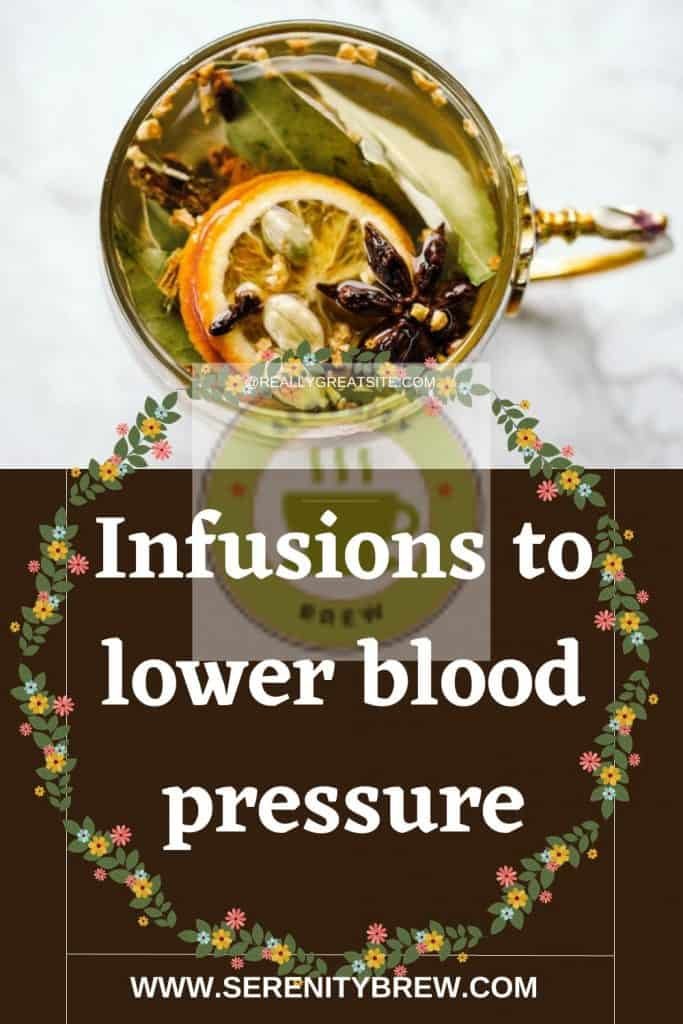
Is it possible to treat tension problems through infusions? Yes, there are numerous herbs that have been shown to have properties that help control it.
Of course, if you suffer from this condition, we recommend that you consult with your doctor how they can complement the following infusions to lower blood pressure in your particular case.
What is high blood pressure?
The blood pressure is the force of blood pushing against artery walls.
Pressure is measured through two parameters: systolic, which is the highest pressure that occurs when the heart beats and pumps blood throughout the body, and diastolic, which is generated when the heart rests.
Generally, 120/80 is considered normal pressure (i.e. 120 systolic and 80 diastolic) and a person has high blood pressure when their systolic is greater than 140 or diastolic is greater than 90.
Currently, there are many people who suffer from hypertension, a disease that needs to be controlled as it is a marker that increases the risk of heart problems and strokes.
To reduce the risk of suffering from any of these serious diseases, it is recommended to reduce body fat, exercise regularly, eat a healthy diet, limit the consumption of caffeine, sodium and alcohol, not smoke and visit the doctor regularly.
9 infusions to lower blood pressure

The properties of different herbs that had traditionally been used as a treatment to lower blood pressure and confirmed or refuted their effects. Here we discover them one by one.
Garlic infusion
Have you ever heard that eating raw garlic helps take care of blood pressure? Well, alternative medicine recommends infusions of 2 cloves of garlic per cup of boiling water to keep blood pressure under control.
Valerian infusion
Valerian infusion is famous for its relaxing properties that help you fall asleep. In addition, it has anti-inflammatory and anti-stress properties and helps regulate blood lipids as well as blood pressure.
Use 5 g of valerian root or leaves for every cup of water. Cook for 5 minutes, turn off the heat and let stand another 5 minutes before drinking.
Lavender infusion
Alternative medicine has been recommending drinking lavender tea for hundreds of years to improve general fitness.
Although we have not found specific studies on the infusion and its relationship with the reduction of blood pressure, it is true that there are studies that indicate that its oil would be capable of improving the quality of life of patients with hypertension.
Prepare the infusion by cooking lavender flowers in boiling water for 5 minutes.
Oregano infusion
Oregano is one of the spices that is not usually missing in any home. Commonly used to season sauces, did you know that it is also possible to prepare an infusion with this herb?
Some animal studies concluded that its carvacrol and potassium content help reduce blood pressure levels.
Prepare a decoction of one tablespoon of oregano for every 1/2 liter of water. Strain and sweeten with honey, ready!
Horsetail infusion
Did you know that fluid retention is associated with hypertension? Although it is not always caused by it, on many occasions they are linked. When edema prevents proper blood flow, the heart can become overloaded, increasing blood pressure and, therefore, the risk of heart attack. Being a diuretic herb, horsetail helps prevent high blood pressure.
Place 5 g of horsetail per cup of boiling water. The recommended resting time is 8 minutes.
Dandelion infusion
The famous yellow flowers known as dandelions have proven diuretic properties. For this reason, it is argued that it serves to improve blood pressure levels. Remember that by promoting good kidney function, excess salts are eliminated, in addition to liquids. On the other hand, it has anti-inflammatory activity that protects the heart muscle.
Prepare it by infusing a tablespoon of dandelion leaves, flowers or root for each cup in boiling water for 5 minutes.
Hawthorn infusion
Hawthorn is a well-known stress-reducing tea. It is rich in flavonoids, antioxidant substances that fight free radicals, protecting the body from diseases. On the other hand, they have a relaxing function and, therefore, protect the arterial walls, avoiding blockages.
Its decoction is carried out with 2 flowers per cup of boiling water. After resting for 5 minutes, it can be sweetened and drunk.
Passionflower infusion
Mainly, it is recommended for its vasodilator and anti-inflammatory properties that help keep the arteries healthy. Preparing the infusion is as simple as dissolving passionflower tincture in hot water and drinking.
Olive leaf infusion
Specialists in Ayurveda medicine maintain that its vasodilator function helps keep the arteries in good condition, preventing an increase in blood pressure.
Boil the water and cook 5 olive leaves per cup. After a 5-minute break, you can sweeten the infusion and drink.
What do you think of our selection of infusions to lower blood pressure? They are delicious and effective. Do not hesitate to try them and, of course, consult your doctor if you have any doubts.
